Diagnostics
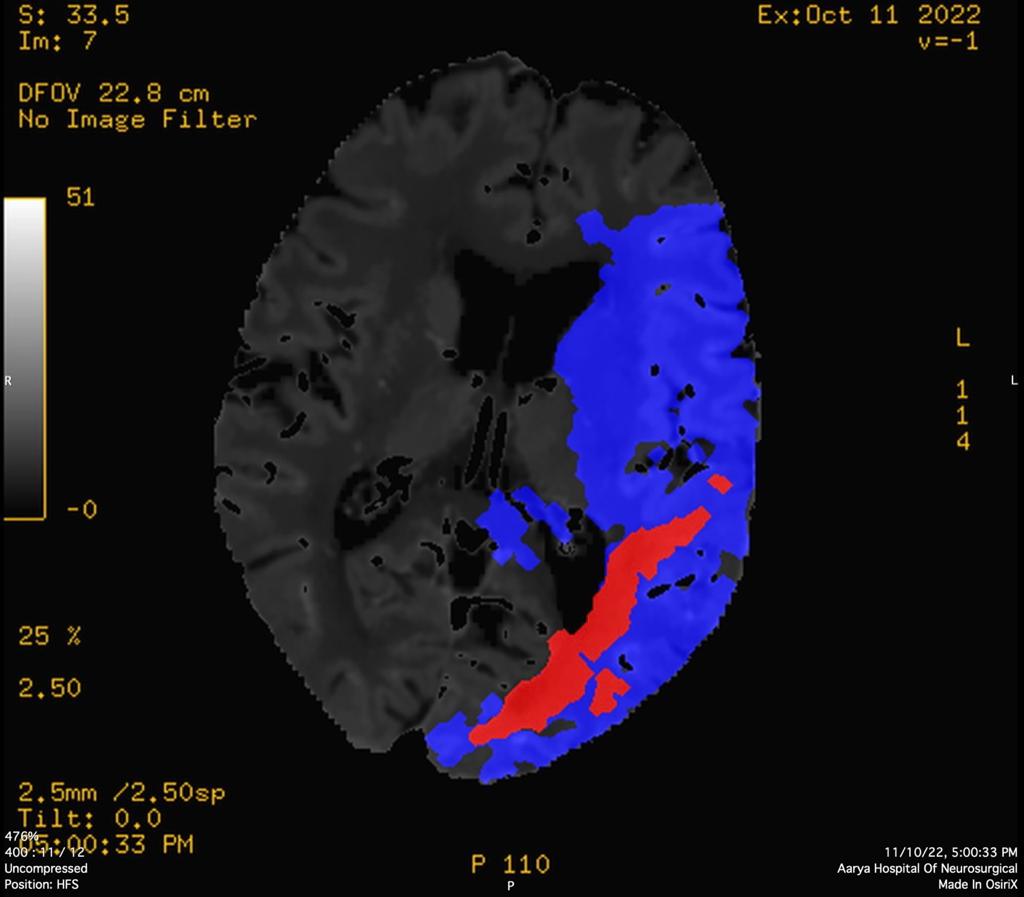
CT Perfusion
A CT perfusion scan is a quick and painless imaging test that shows how blood is flowing in specific areas of the body, often used for the brain. It involves injecting a contrast dye and taking a series of X-ray images to assess blood circulation in real-time. This helps doctors identify issues like strokes or brain tumors by pinpointing areas with abnormal blood flow. The results guide accurate diagnoses and treatment plans.
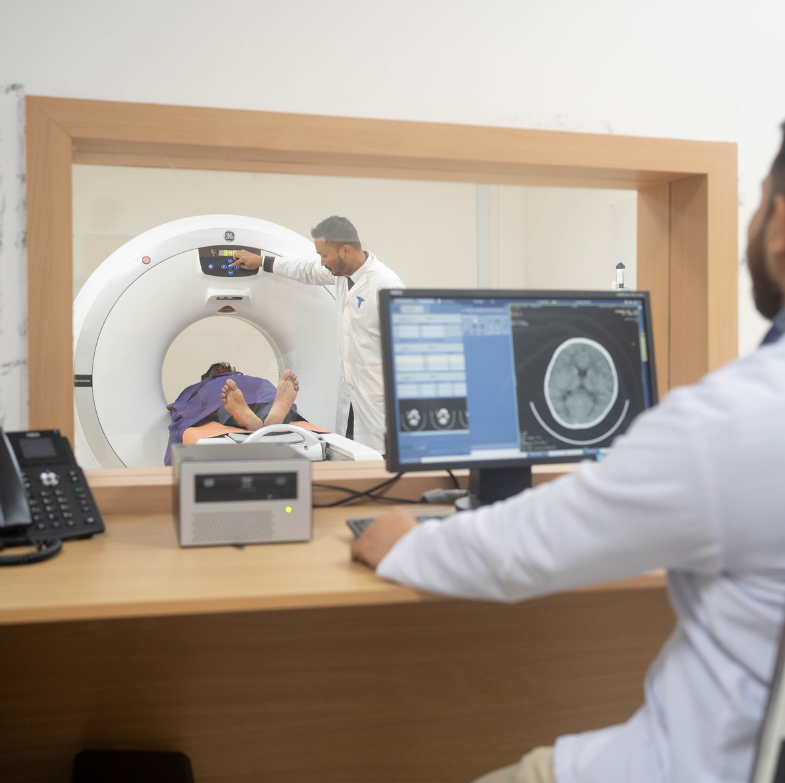
CT scan
GE, a renowned company in medical imaging technology, has developed a cutting-edge CT scan system designed for comprehensive imaging of all body parts, encompassing cerebral and peripheral angiography. This advanced CT scanner from GE integrates precision and versatility, providing high-resolution images for accurate diagnosis across a spectrum of medical conditions. With state-of-the-art technology, it offers a non-invasive and efficient means to visualize intricate vascular structures in both the brain and peripheral regions. The system's capabilities make it an invaluable tool for healthcare professionals seeking detailed and precise insights into a patient's anatomy, facilitating optimal treatment planning and enhancing overall patient care.
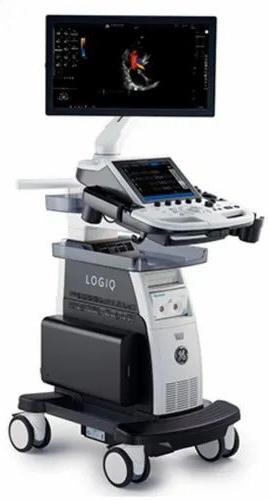
USG and Echocardiography
The GE Logiq P7 is a versatile ultrasound system designed for both general imaging and echocardiography. Renowned for its portability and advanced imaging capabilities, the Logiq P7 delivers exceptional image clarity and detail. Its user-friendly interface and ergonomic design make it an ideal choice for healthcare practitioners performing a wide range of ultrasound examinations, from abdominal scans to detailed echocardiography studies. With innovative features and advanced technologies, the GE Logiq P7 ensures accurate diagnostics and enhances the efficiency of ultrasound and echocardiography procedures.
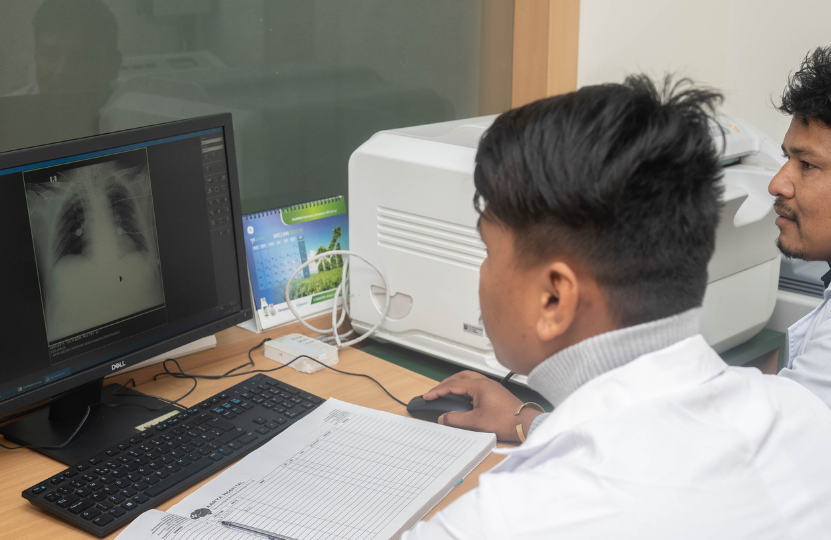
X-ray
Portable 100mA and 500mA digital X-ray systems in hospitals exemplify advanced diagnostic imaging. The portable 100mA unit offers on-the-spot imaging, ideal for emergencies, while the 500mA digital system provides high-quality digital images for various diagnostic applications. Both systems enhance hospital workflows, ensuring quick and precise diagnostics for improved patient care.

eEG
Electroencephalography, commonly known as EEG, is a non-invasive neurodiagnostic test that records electrical activity in the brain over time. During an EEG, electrodes are placed on the scalp to detect and amplify the brain's electrical signals. This painless and safe procedure helps in evaluating and diagnosing various neurological conditions, such as epilepsy, seizures, and certain sleep disorders. EEG plays a crucial role in understanding brain function by capturing patterns of electrical activity, aiding healthcare professionals in determining the appropriate treatment plans and interventions for patients with neurological disorders.

NCV study
Nerve Conduction Velocity (NCV) study is a diagnostic test that evaluates the speed of electrical impulses as they travel through nerves. This non-invasive procedure involves placing electrodes on the skin to stimulate nerves with small electrical pulses and recording the resulting responses. NCV is particularly useful in diagnosing nerve damage or dysfunction, such as in conditions like carpal tunnel syndrome or peripheral neuropathy. By assessing the speed and strength of nerve signals, healthcare professionals gain valuable insights into the integrity of the peripheral nervous system, aiding in the accurate diagnosis and management of various neurological disorders.

Holter ECG
A Holter ECG, or ambulatory electrocardiography, is a diagnostic test that continuously records the electrical activity of the heart over an extended period, typically 24 to 48 hours. This portable device, known as a Holter monitor, is worn by the patient during their daily activities, providing a comprehensive evaluation of the heart's rhythm. It is particularly valuable in detecting intermittent or sporadic cardiac abnormalities that may not be captured during a conventional ECG. Holter ECGs are commonly employed to investigate symptoms like palpitations, dizziness, or unexplained chest pain, helping healthcare professionals identify irregularities in heart function and develop appropriate treatment plans for cardiovascular conditions.
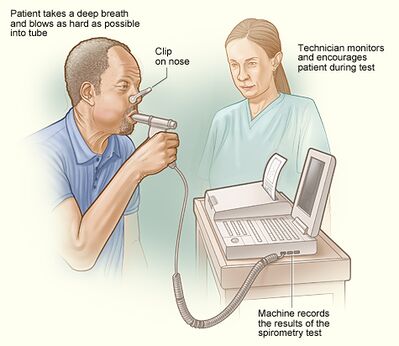
Pulmonary function test
A Pulmonary Function Test (PFT) is a diagnostic procedure designed to assess the functioning of the lungs and respiratory system. This non-invasive test measures various parameters, including lung capacity, airflow, and gas exchange. During a PFT, a person breathes into a machine that analyzes the volume and speed of their breath, providing valuable information about lung function. PFTs are crucial in diagnosing and monitoring respiratory conditions such as asthma, chronic obstructive pulmonary disease (COPD), and restrictive lung diseases. The results help healthcare professionals tailor treatment plans, track disease progression, and optimize respiratory care for individuals with pulmonary issues.
